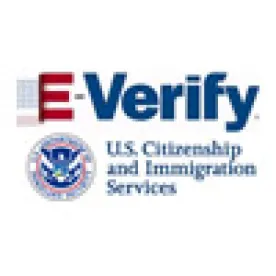On July 1, 2015, E-Verify formally implemented its Tentative Non-Confirmation (TNC) E-Mail Notification enhancement, which permits E-Verify to directly notify employees when a TNC is issued during the employment verification process. Prior to the introduction of this feature, only employers were alerted to TNCs issued by the system.
Specifically, employees who enter a valid e-mail address in Section 1 of the Form I-9 and receive a TNC during the employment verification process will be contacted directly by federal agencies in the event of a data mismatch between the information noted on the Form I-9 and the data found in federal government databases. Importantly, employers are advised to remember that the e-email field on the Form I-9 is entirely optional. In addition, employees may elect to record any valid e-mail address of their choosing, including a work-based address. Employers will continue to be notified when a TNC occurs and will retain the obligation to notify employees accordingly, even if employees are also directly notified via the email address provided on the Form I-9.
In addition to the finalized enhancement described above, E-Verify is also actively soliciting comments until Aug. 7, 2015, regarding three additional features that could substantively add to the program’s functionality. Specifically, the proposed enhancements include:
1) Final Non-Confirmation (FNC): If implemented, this feature will enable employees to contest FNCs they feel were issued in error.
2) Re-verification: If implemented, this feature will require employers to re-verify the U.S. work authorization status of employees who present temporary evidence of U.S. employment eligibility during the Form I-9 completion process. As proposed, this requirement will extend to employees who were hired prior to the employer’s execution of the Memorandum of Understanding (MOU).
3) MOUs: Additional modifications to the MOU entered into between employers and the federal government have been proposed to support new business processes.
As a final note, employers are reminded to correctly and consistently apply E-Verify procedures and adhere to all corresponding obligations in order to ensure full compliance with program requirements. Notably, E-Verify’s Office of Monitoring and Compliance regularly reviews enrolled companies’ records for irregularities and evidence of impermissible conduct, such as potential discrimination. Moreover, in recent years, a sharp increase in inter-agency referrals connected to employers’ perceived or actual misuse of the system has been detected – in some cases leading to audits of employers’ Form I-9 files. Accordingly, employers are advised to contact experienced immigration counsel when contacted by E-Verify’s Office of Monitoring and Compliance.



 />i
/>i

